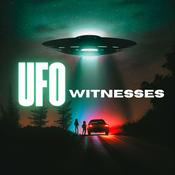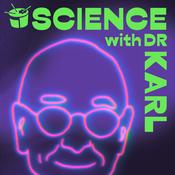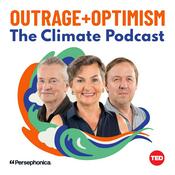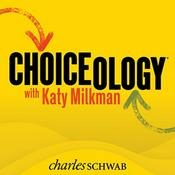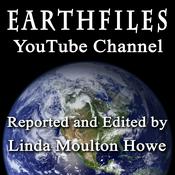53 episodes
- What does the arrival of winter mean for plants and animals? In this programme Tom Heap and Helen Czerski find out how wildlife survives the freezing temperatures and short days of the winter months. In a time of climate change, they also ask how warmer weather patterns are affecting the natural world at this time of year. Do we have to get used to the idea of winters without snow and ice, and will winter scenes of robins on snowy branches and children sledging down hillsides only exist on Christmas cards?
Panel: Hugh Warwick, John Hammond, Val McDermid
Producer: Emma Campbell
Assistant Producer: Toby Field
Produced in association with the Open University - How we get around town has never been more political, with controversies over low traffic neighbourhoods and 15 minute cities, and rows about congestion charging and public transport breaking out all over the country. Tom and Helen are in search of the kind of consensus that makes things faster, cheaper and smoother for all of us. What works and what’s been a complete flop? Should we all stop moaning and get on our bikes? Who is the reshaping of traffic flows working - and not working - for? And could Milton Keynes have all the answers?
With contributions from:
Chris Boardman, Commissioner of Active Travel England.
Stephen Potter, Emeritus Professor of Transport Strategy at the Open University
Karen Lucas, Professor of Human Geography at the University of Manchester and Director of the Manchester Urban Institute
Natalie Ashton. Senior Engagement Officer (North) at Transport for All
Presenters: Tom Heap & Helen Czerski
Producers: Beth Sagar-Fenton & Alasdair Cross
Assistant Producer: Toby Field
Editor: Alasdair Cross
Rare Earth is produced in association with the Open University. - We tend to think of wildlife as something which exists in the countryside or in nature reserves, but in fact there are plenty of plants and animals which thrive in an urban environment. In this programme Tom Heap and Helen Czerski explore the species that live alongside us in our towns and cities - finding out what makes a good habitat for them, asking why they're important, and discovering what advantages they bring to the human population. They're joined by a panel of experts: Professor Dawn Scott from Nottingham Trent University, writer Chris Fitch, and founder of Rewild My Street Siân Moxon, who's also Associate Professor Sustainable Architecture at London Metropolitan University.
Producer: Emma Campbell
Assistant Producer: Toby Field
Rare Earth is produced in association with the Open University - 190 years ago Charles Darwin stepped ashore in Falmouth at the end of a five year voyage that would transform the way in which we all think about nature. But how does his work and that of his fellow evolutionary theorist, Alfred Russel Wallace stand up in a world of climate change and habitat destruction?
To find out, Tom Heap and Helen Czerski are joined by Sandra Knapp of the Natural History Museum, naturalist and broadcaster Mike Dilger and by Armand Marie Leroi, professor of evolutionary developmental biology at Imperial College, London.
Producer: Alasdair Cross
Assistant Producer: Toby Field
Rare Earth is produced in association with the Open University - Whether you love to express yourself through fashion, or find getting dressed a chore, clothing isn’t optional - and every choice has an impact. So how do our fashion choices affect the environment? Who's paying the price? And - most importantly - how can we do things differently? Can individuals and business rethink how we see clothes to prioritise the planet?
Tom Heap and Helen Czerski get beneath the surface on this huge subject with Patrick Grant, presenter of The Great British Sewing Bee, hugely influential professor and author Kate Fletcher, and Simon Platts, a sustainability consultant with decades of industry experience.
After you listen to this you might never see your clothes the same way again.
Featuring:
Patrick Grant - Presenter and entrepreneur
Kate Fletcher - Professor of Sustainability, Design and Fashion Systems in the Manchester School of Art at Manchester Metropolitan University
Simon Platts – Sustainability consultant
Skye Pennant
Julian Ellis-Brown & Finlay Duncan
Presented by Tom Heap & Helen Czerski
Produced by Beth Sagar-Fenton & Toby Field
Mixed by Ilse Lademann
Editor: Alasdair Cross
More Science podcasts
Trending Science podcasts
About Rare Earth
Environmental journalist Tom Heap and physicist Helen Czerski tackle major stories about our environment and wildlife, celebrate the wonder of nature and meet the people determined to keep it wonderful.
Podcast websiteListen to Rare Earth, The Rest Is Science and many other podcasts from around the world with the radio.net app
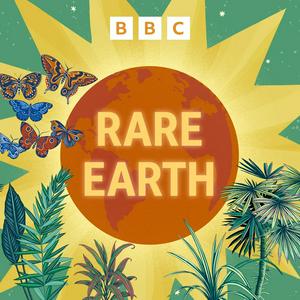
Get the free radio.net app
- Stations and podcasts to bookmark
- Stream via Wi-Fi or Bluetooth
- Supports Carplay & Android Auto
- Many other app features
Get the free radio.net app
- Stations and podcasts to bookmark
- Stream via Wi-Fi or Bluetooth
- Supports Carplay & Android Auto
- Many other app features


Rare Earth
Scan code,
download the app,
start listening.
download the app,
start listening.












